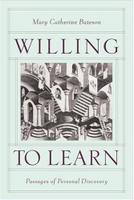
This article (from Sunday Inquirer) by cultural anthropologist Mary Catherine Bateson examines changes in authority and learning that have been taken place and what it might mean for society. She apparently writes about this in depth in her book Willing to Learn: Passages to Personal Discovery.
Some interesting excerpts from the article:
But in addition to teaching their parents how to deal with new technologies, kids today also are teaching them profound ethical lessons about protecting the natural world and respecting themselves and others. Here are some of the examples I have heard from schoolchildren that go beyond technology or popular culture: A girl: "I taught my mom to recycle." A boy: "I taught my dad to enjoy rap." A boy: "I taught my mom to be independent." A girl: "I taught my dad not to interrupt me." A boy: "I taught my dad not to make cracks about gays."
The relationship between who learns and who teaches has been fairly constant in human cultures for millenniums; you looked at the previous generation to learn how to live. Of course parents and teachers still do a huge amount of teaching, from life skills to grammar, but today children increasingly are teaching their elders, as well. To thrive under conditions of accelerating change, you have to be learning all the time.
A whole series of relationships are becoming two-way streets: The boss has to listen to the employee, the manufacturer has to listen to the customer, the professor has to listen to the student, and the political leader who doesn't listen is likely to be out of a job. Change means that the nature of authority also is changing all over the world.
The transition I'm talking about takes a couple of generations and is moving unevenly through society, but it is already well under way. I think we are now, in this country, beginning to have a college population whose parents already understood that they didn't know all the answers and were curious and ready to learn from their children, so that the kids grew up in a kind of dialogue. That's not to say that it's true of everybody, but there's a shift in ethos.
And my personal favorite:
The slogan I use is, "You are not what you know but what you are willing to learn." Willingness to learn demands respect for others across difference. Puzzling and even disturbing ideas are invitations to curiosity, and the greater the difference the more there may be to be learned. The world is a rain forest of variety full of promise that is at risk of being lost. If one teenager could give his father an appreciation of rap, another may be interestingly articulate about body piercing and baggy clothes. I have argued that the willingness to learn is a form of spirituality. It is a stance of humility, because there is so much to be learned.
This describes a change in the atmosphere and meaning of education that has been going on for some time now. And although some haven chosen to focus on the lack of respect shown to authority figures like teachers, others have seen the positive aspects of this revolution and how classrooms must adapt to it. More support for education as a conversation and equiping students with the skills they need to adapt and learn in an ever changing and "flat" world.
No comments:
Post a Comment